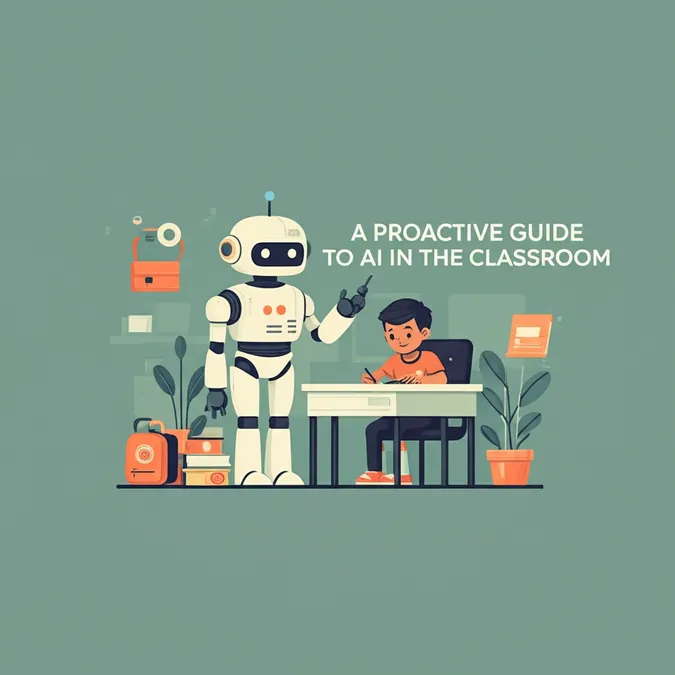Developer Offer
Try ImaginePro API with 50 Free Credits
Build and ship AI-powered visuals with Midjourney, Flux, and more — free credits refresh every month.
How AI Is Changing The Way We Write and Speak
The way we write and speak is undergoing a subtle but significant transformation, and the catalyst is Artificial Intelligence. According to startling new research, large language models like ChatGPT are not just learning from our language; they are actively influencing it back. This digital feedback loop is changing our vocabulary, sentence structure, and even how we perceive each other.
The AI Echo Chamber How Our Language is Changing
It starts with the words we choose. Linguists have noticed a curious uptick in specific words and phrases—"delve," "meticulous," "adept"—that are hallmarks of AI-generated text. A groundbreaking study from Germany's Max Planck Institute found that after ChatGPT's release, academic YouTubers began using these AI-favored words up to 51% more frequently.
This shift isn't surprising when you consider how deeply AI tools are embedded in our digital lives. From word processors to messaging apps, AI writing assistants are constantly suggesting, correcting, and shaping our text, making their influence almost inescapable.
The Risk of a Monotone World Linguistic Homogenization
While AI can be a helpful tool, experts are concerned about the long-term effects of this influence. The primary worry is linguistic homogenization—a fancy term for our language becoming bland and uniform. Writing filled with the same clichés and buzzwords loses its power to capture attention and convey genuine meaning.
This standardization also threatens the rich diversity of global English. Research from Cornell University suggests that AI is subtly pushing Indian English speakers to adopt a more American writing style. Similarly, a UC Berkeley study found that ChatGPT defaults to Standard American English, often creating exaggerated caricatures when prompted with other dialects. These unique linguistic quirks are part of our cultural identity, and their erosion is a significant loss.
More Words Less Meaning AI and Increased Verbosity
Have you noticed online posts getting longer and more flowery? You can likely thank AI for that, too. A study by Swinburne University of Technology in Australia examined Facebook Marketplace listings and found a dramatic increase in length after users were exposed to ChatGPT-written examples. The average listing ballooned from a concise 33 characters to a wordy 87 characters. This trend towards verbose prose is a direct consequence of AI's tendency to elaborate.
AI in Conversation A Double-Edged Sword for Trust
![]()
The impact of AI extends beyond style and into the core of our social interactions. In the workplace, AI-assisted communication can be a mixed bag. A Cornell University study on "smart replies" in work chats revealed that because AI often uses more emotionally positive language, it can actually help build trust between colleagues.
However, there's a catch. The same study found that when people suspected a message was AI-generated, they viewed the sender as less collaborative and more demanding. This highlights a critical challenge: as AI mediates more of our communication, it could inadvertently strain the very human relationships it's meant to facilitate.
Reclaiming Our Voice Resisting AI's Linguistic Influence
Recognizing the problem is the first step toward a solution. A backlash against AI's homogenizing effect is already brewing. Many academics are now making a conscious effort to avoid "AI-coded" terms, and some students are taking pride in formulating their own crisp, natural sentences without assistance.
As users, we also have control. By adjusting the settings in AI tools—prompting them to use precise language, avoid repetition, and adopt a more personal tone—we can fight back against the tide of uniformity. While AI is here to stay, it's crucial to remain mindful of its influence. By doing so, we can continue to use our own unique, engaging, and authentic voices to express ourselves.

Compare Plans & Pricing
Find the plan that matches your workload and unlock full access to ImaginePro.
| Plan | Price | Highlights |
|---|---|---|
| Standard | $8 / month |
|
| Premium | $20 / month |
|
Need custom terms? Talk to us to tailor credits, rate limits, or deployment options.
View All Pricing Details

